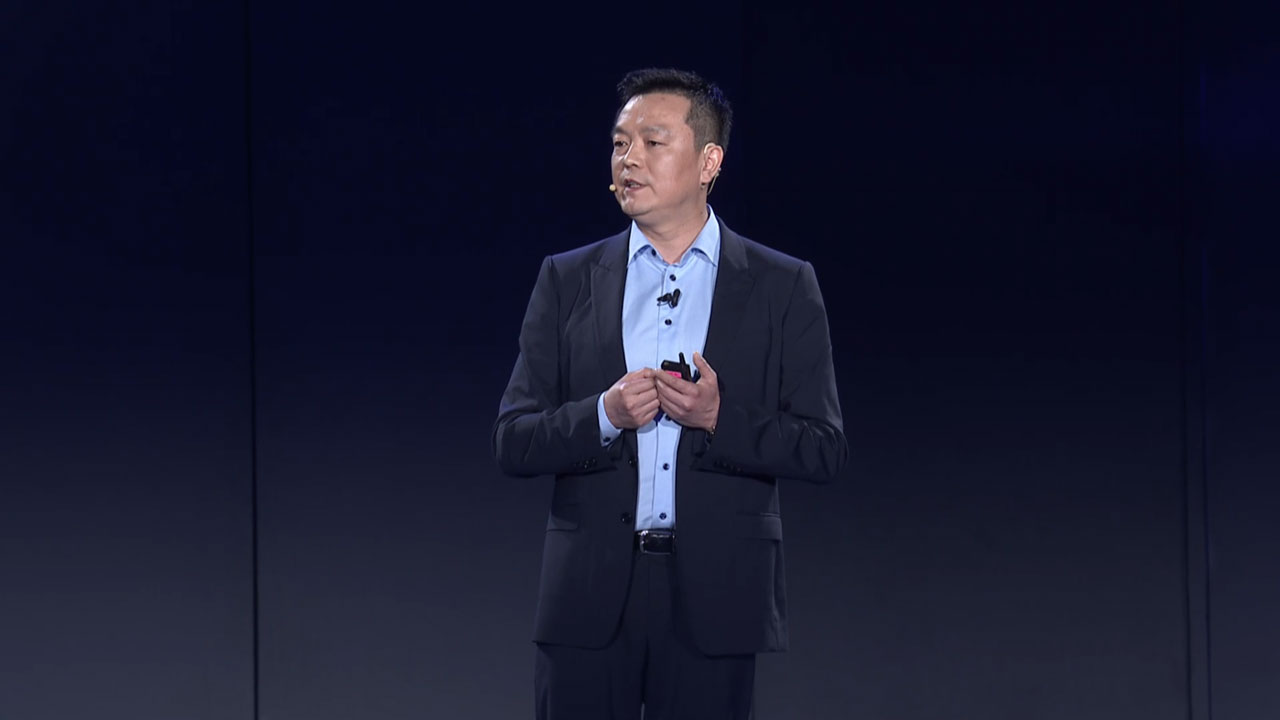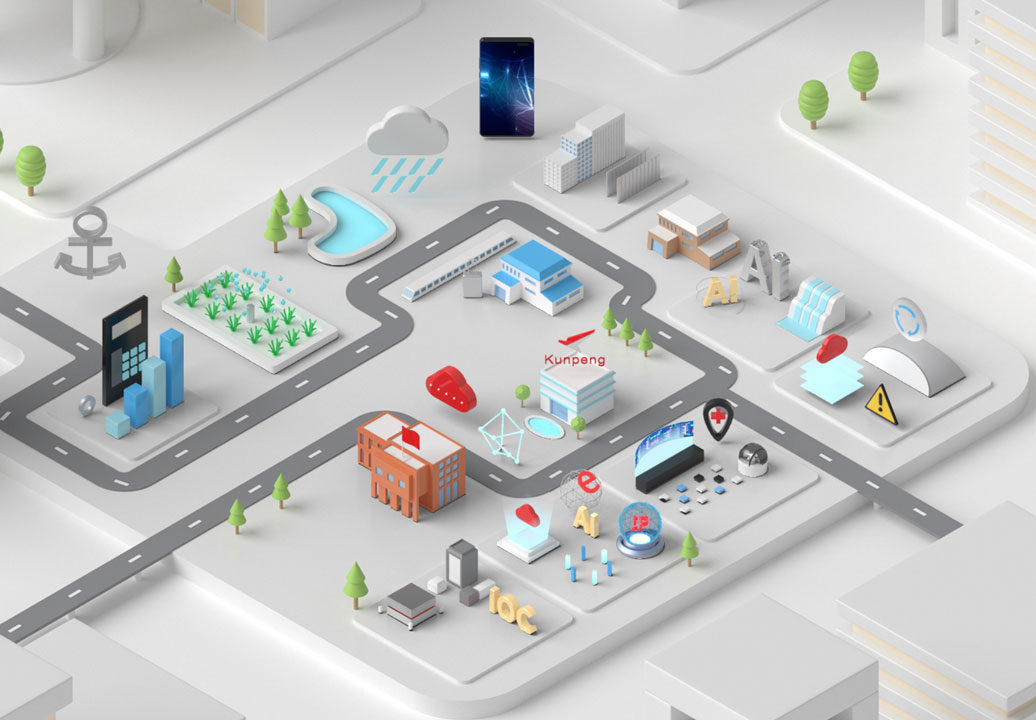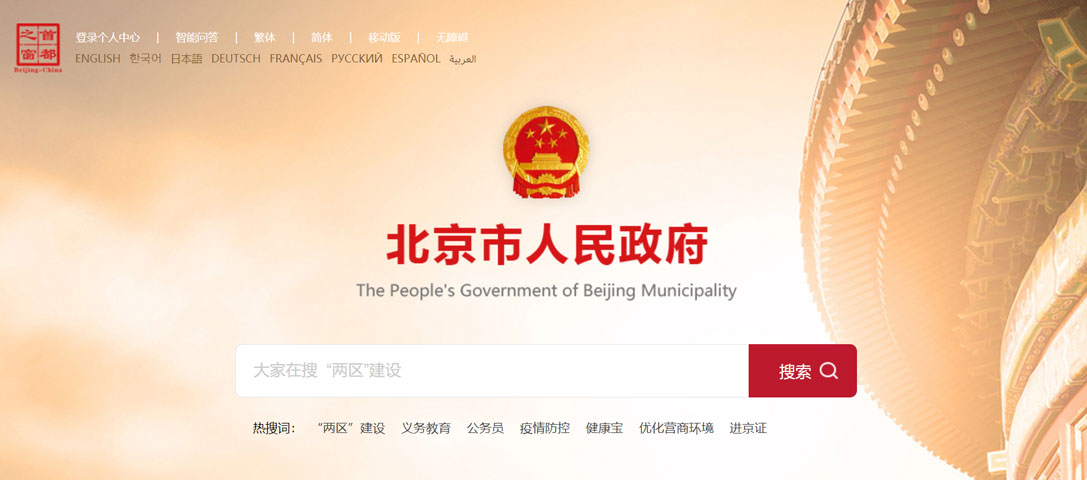Most people came to know Huawei through smartphones and 5G. After the Shenzhen-based giant was hit with a sequence of political and suppressive actions from the U.S. government, Huawei can no longer rely on its smartphone business to grow.
Where will it go next? A new strategy to grow Huawei's global ecosystem has been announced during its "Eco 2021" event in Shenzhen on Monday.
Wu Hui, head of the company's government and enterprise businesses, called the strategy "2+4+1."

Wu Hui, head of Huawei's government and enterprise businesses, talks about the new ecosystem strategy at the company's Eco 2021 event in Shenzhen, May 17, 2021. /Huawei
Wu Hui, head of Huawei's government and enterprise businesses, talks about the new ecosystem strategy at the company's Eco 2021 event in Shenzhen, May 17, 2021. /Huawei
To be specific, the company's ecosystem development will focus on two aspects: creating standards on digitizing various industries and customizing its services for each city and each county.
The company will also change four aspects of the ecosystem concerning service offerings, long-lasting evolution of business solutions, partnership with other companies and talent discovery.
All in all, the company will go on centering around one side: the clients.
The "Eco 2021" event and the new strategy mainly target government and business clients. Huawei said it has been building its partnership with other companies since 2011. After 10 years of development, it now has more than 11,000 partners across China and certified its products to clients more than 300,000 times. For the next 10 years, Huawei will increase partnership projects and expand its local sales network, the company announced.
To have a clearer understanding of Huawei's new ecosystem strategy, CGTN Digital checked the online expo portal of the Eco 2021 event.

Huawei's virtual expo portal for online public service, featuring its Kunpeng cloud platform, is showcased on the company's Eco 2021 event website. /Huawei
Huawei's virtual expo portal for online public service, featuring its Kunpeng cloud platform, is showcased on the company's Eco 2021 event website. /Huawei
One of the highlights at the expo is a cloud-based public service solution, which has been adopted by Beijing's government since 2019.
For an international metropolitan city like Beijing, the local government has a large number of employees and provides services to more than 2 million people and organizations.
There are so many people using the online public service that even the login process can take a long time.
What's worse, the central government requires all services to work on an IPv6 network – a whole new version of the internet that is quite new to some network service technicians.
Huawei claimed it helped Beijing set up the basic cloud infrastructure in 21 days, and existing services can be ported to the cloud in as fast as two hours. Now the municipality has an all-in-one public service web portal which is IPv6-compatible and can provide almost instant online authorization for all users.

A screenshot of the Beijing government's web portal, taken on May 19, 2021. /Beijing Municipal Government
A screenshot of the Beijing government's web portal, taken on May 19, 2021. /Beijing Municipal Government
This is also Huawei's first public service cloud built on its own IT infrastructure based on the self-designed Kunpeng 920 chip.
As a media outlet, CGTN Digital was interested in checking Huawei's 5G-based video production cloud. Unfortunately, the company only provided an illustration of the cloud's structure with no examples.
After all, the Huawei Eco 2021 event is not mainly about the consumer ecosystem but about the business to business (B2B) scenario instead. The company has established a seemingly solid cloud infrastructure, part of which is serving important clients like the Beijing municipal government. The new strategy is more about future plans on partnership with other companies and this can be seen as a signal that Huawei will further expand the B2B part instead of taking a conservative step.

